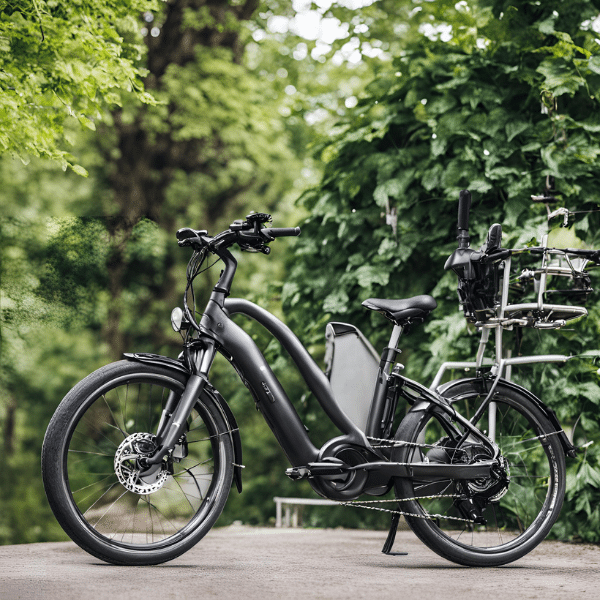Unlocking the Environmental and Health Benefits of Riding an E-Bike
In a time where sustainable transportation and personal wellness are receiving more attention than ever before, e-bikes stand out as groundbreaking. This article examines the two-fold benefits of E-bikes, drawing attention to their environmental effects as well as health advantages. As compared with conventional vehicles, e-bikes cut down on carbon emissions greatly thereby serving as an ecofriendly option for daily commuting and leisurely cycling. At the same time they act as catalysts towards better physical fitness and mental wellbeing thus making them perfect for those who want to live holistically. The main reason behind this all-inclusive study is to help readers comprehend how incorporating e-bikes into their schedules can foster a healthier lifestyle while still saving the planet.
What Are the Core Environmental Benefits of Electric Bikes?
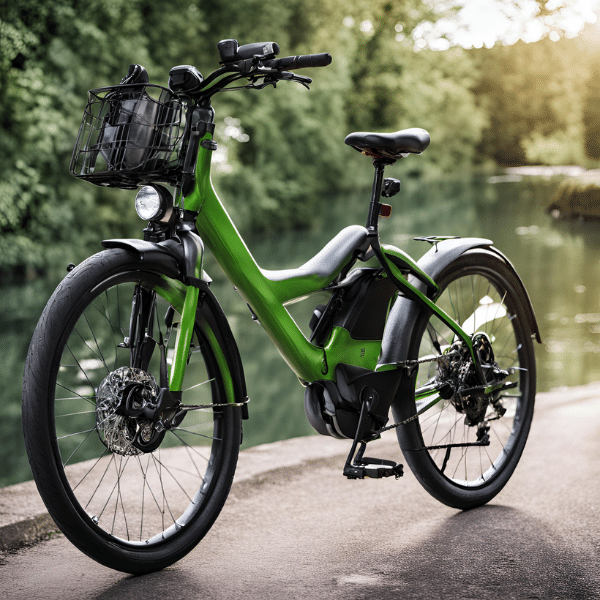
Reducing Greenhouse Gas Emissions
Mitigating climate change is a primary function of electric bikes (e-bikes). This is because people who use them can cut down on their carbon emissions by replacing car journeys with e-bike rides. In fact, according to the European Cyclists’ Federation (ECF), approximately 22 grams of CO2 are emitted per kilometer traveled on an e-bike compared to 271 grams in a car over the same distance. E-bikes can also be combined with public transport systems so that even fewer cars need to be used; not only this, but the batteries for these bikes – which do consume electricity – are increasingly powered by renewable sources as well, thus making them more environmentally friendly too. Therefore it follows that if lots more people start using e-bikes, then we could see some very positive impacts when it comes to global warming reduction efforts and battling climate change itself.
Lowering Urban Air Pollution
Decreasing Dependence on Fossil Fuels
Electric bikes have a huge role to play in cutting down our reliance on fossil fuel. They act as a sustainable substitute for gasoline-powered cars, thus reducing the consumption of oil and gas. This switch is important considering that these reserves are limited and their extraction and use cause harm to the environment. E-bikes function by means of rechargeable batteries which more often than not come from renewable sources like solar or wind energy. What this does is not just reduce dependence on fossil fuels but also cuts greenhouse gas emissions produced during conventional power generation systems.The fact that they consume considerably less energy per mile compared to automobiles has shown how much more efficient with energy e-bikes can be during operation when integrated into daily transportation habits; Therefore it represents a significant step towards sustainability.
How Do E-Bikes Contribute to Eco-Friendly Commutes?
Emission-Free Riding Experience
E-bikes are different from traditional gasoline-powered vehicles because they do not produce any emissions while being ridden. Cars release air pollution and greenhouse gases through their tailpipes; e-bikes don’t. This is why e-bikes are a good choice for commuting over both short and long distances if you care about the environment. The electric motor and battery in an e-bike consume energy more efficiently than any other type does while creating the least amount of carbon dioxide when used together with each other or separately as well but not alone even if it were possible which it isn't so never mind that part either because there’s no need to worry too much over such things anyhow since nothing can be done about them after all, right? And if you want to charge your e-bike with renewable energy sources like solar panels on top then they become even more green-friendly! No other vehicle can match this zero emission capability combined with potential for sustainable energy utilization towards mitigating urban pollution thereby fostering greener cities than an electric bicycle does.
Less Energy Consumption Compared to Cars
Electric bicycles are more sustainable than traditional cars because they use up much less energy. Usually, e-bikes need between 10-15Wh of electricity per mile while cars consume about 1.5kWh per mile on average. This significant dissimilarity in energy consumption leads to a lower overall demand for energy and less pressure on power grids. Moreover, due to their better energy efficiency, e-bikes can travel long distances using small amounts of energy thereby serving as an effective solution for daily commuting and running errands too. With cities prioritizing ecological transportation networks more each day, the introduction of electric bikes may greatly help in reducing environmental impact associated with personal transportation. This decreased use of power also directly lowers greenhouse gas emissions thus contributing towards healthier urban environments that are sustainable.
Integrating with Renewable Energy Sources
Can Riding an E-Bike Improve Your Health?
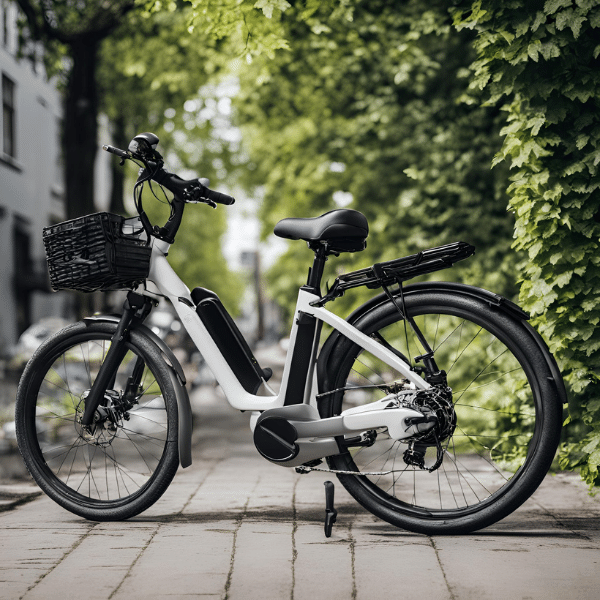
Boosting Physical Activity Levels
Making use of an e-bike can certainly boost your health by increasing the amount of physical activity that you engage in. Studies show that even though e-bikes provide electric assistance, riders still do moderate exercise because they keep pedaling through their entire journey. They pedal with such a level of effort which might not be as high as when using regular bikes but is enough to make one’s heart rate go up and improve cardiovascular fitness. It also widens accessibility for those who are less fit, elderly or recovering from injury thereby serving as inclusive exercise. Regular participation in this kind activity will help manage weight, promote good mental health by reducing stress levels and increasing the release endorphins leading to better fitness overall among other things. Therefore, it becomes reasonable to suggest that we incorporate e-bikes into our daily routine as an alternative form of exercise parallel traditional exercises so as increase physical activity across different population groups.
Reducing Exposure to Air Pollutants
If you use e-bikes for daily commutes instead of cars, exposure to air pollutants can be reduced remarkably. Automotive emissions are a primary cause of nitrogen dioxide (NO2) and particulate matter (PM2.5), both of which are harmful to human health. When people go for e-bikes; they spend less time in heavily contaminated traffic zones and cut down on their private discharges into the atmosphere at the same time. Additionally, ebicycles usually follow less crowded routes like bike lanes or pathways that are generally located far from busy roads thereby exposing riders to cleaner air. Studies have shown that individuals who cycle to work inhale fewer toxins as compared to those who use private vehicles or public transport systems. As a result, such adoption not only enhances cardiovascular and respiratory fitness but also promotes healthier living environments through lowered overall emission rates caused by this mode of transport’s popularity.
Improving Mental Health Through Outdoor Activity
The scientific community has always been supportive of the idea that mental health improves when people spend time outside. Taking part in outdoor activities are found to enhance mental well-being substantially, this can be achieved through e-biking among others as it helps to reduce stress levels as well as anxiety and depression. Physical exercise coupled with being exposed to natural environments leads to the release of endorphins and serotonin which are hormones associated with mood elevation according to various studies. In addition, they also show that cognitive functions are bettered while people feel more relaxed and happy at the same time becoming mentally sharper overall due to engaging in such exercises. Participation in group rides or community based events further enhances socialization thus reducing isolation feelings too. For this reason it is important that individuals include e-biking or any other form of an outdoor activity into their daily routine since they may contribute greatly towards improving one’s mental health.
How Significant Is the Impact of E-Bikes on Urban Traffic Congestion?
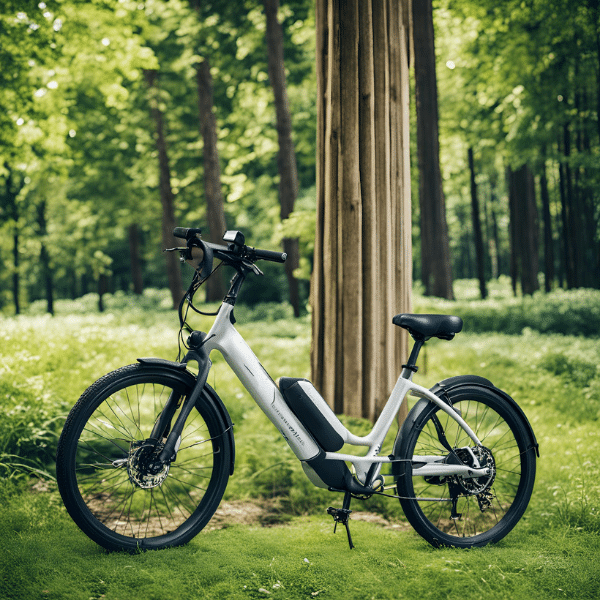
Alleviating Traffic Jams with More Compact Vehicles
Enhancing the Efficiency of Urban Commutes
E-bikes increase the efficiency of urban commutes by allowing quicker and more adaptable travel. They help in reducing journey times as well as serving as a substitute for overcrowded, delayed public transport. E-bikes with assisted pedalling can also cover longer distances without much effort, making them ideal for daily use. Furthermore, the integration of e-bikes with public transport networks through bike sharing programs or dedicated lanes creates a seamless and efficient urban mobility system. Additionally, E-bikes contribute towards environmental sustainability by reducing dependence on fossil fuels and cutting down greenhouse gas emissions hence fostering efficiency in urban transportation that is friendly to the environment.
Encouraging a Shift from Car Trips to Bike Rides
Comparing the Environmental Impact: E-Bikes Versus Traditional Bicycles and Cars
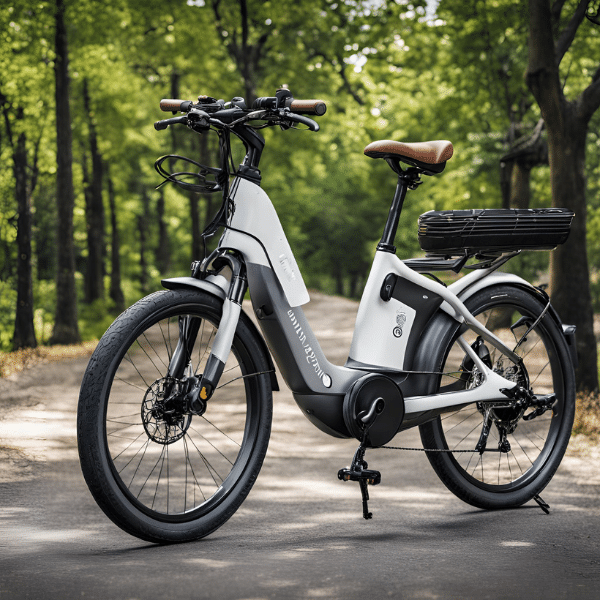
Carbon Footprint Analysis
If we want to know the carbon footprint of electric bikes, traditional bicycles and cars, we should look at emissions over their entire life cycle from manufacture to disposal. E-bikes have a greater initial carbon footprint than traditional bikes because they use batteries and more sophisticated components though powered by electricity. However, during their time in use e-bikes save much more CO2 compared to cars. According to researches e-bikes produce 5-10 grams per mile of CO2 while traditional bikes emit around 15 grams per mile factoring in manufacturing and maintenance stages. On the other hand cars release an average of 400 grams for each traveled mile therefore making them the least environmentally friendly option when compared with other means.
In addition it is important to consider what type of power source charges these vehicles since this greatly impacts overall carbon footprints. If renewable energy is used then charging emissions can be close to zero but if fossil fuels are burnt for electricity generation there will still be significant savings in carbon. For operational pollution levels though human-powered bicycles have least environmental impact but they need frequent servicing which causes negligible pollutants. In conclusion replacing automobiles with e-bicycles and ordinary cycles brings about considerable ecological advantages that help reduce urban air contaminations as well as cut down on green house gases emissions globally.
Assessing the Energy Consumption of E-Bikes
In order to evaluate the environmental impact of e-bikes, one must consider their energy consumption. On average, an e-bike consumes between 0.5 and 1 kWh per 100 km (62 miles). This is equivalent to about 20-40 watt-hours per mile. Several factors can affect the energy efficiency of these bicycles such as; electric motor efficiency, battery capacity and efficiency as well as usage patterns by riders themselves.
Technical Parameters:
- Battery Capacity: Usually these range from 300Wh up till 700Wh which means that higher capacities allow for longer rides but also increase initial carbon footprint due to more material being used in production process.
- Motor Efficiency: Normally the motor has an efficiency level of between 80% –90%. The value is important because it tells us how well electrical energy gets converted into mechanical power necessary for propelling the bike forward.
- Charger Efficiency: It ranges around 85%–95%. The percentage directly determines total consumption during charging cycle.
- Rider Weight And Terrain: A heavy person riding uphill will consume more energy than light weight rider on a flat road section, therefore making this factor play significant role in determining what amount of electricity should be provided by battery at given time.
- Performance modes: Different riding modes like normal mode or sport mode alter assistance level thereby affecting overall power used while cycling hence affecting mileage covered before recharging becomes necessary.
These technical parameters indicate that there needs to be an optimization of e-bikes’ power consumption basing on rider requirements and surroundings. Apart from this using renewable sources of energy for charging can help reduce general carbon foot print thus making them sustainable transport alternatives.
Evaluating the Role of E-Bikes in Clean Air Initiatives
E-bicycles are very important to efforts for cleaner air by being an environmentally friendly alternative to conventional vehicles and thus lowering atmospheric contamination. According to studies, e-bicycles can reduce greenhouse gases and particulate matter that cause poor air quality when they replace car trips. Sharing programs of cities with e-cycles have been followed by fewer traffic jams as well as bettering the state of the atmosphere. E-bikes do not produce any emissions from the tailpipe, and their overall environmental impacts become even smaller if charged with renewable sources of energy, too. They also inspire urban planners to create more bike paths which make commuting safer around cities while promoting sustainability at large through this mode of transport popularity. Based on these points, it becomes clear that without E-Bikes, we can never achieve healthier urban environments or cleaner air in our towns.
Exploring the Sustainable Future of Urban Mobility with E-Bikes

The Role of E-Bike Batteries in Sustainable Transport
The centrality of e-bike batteries in the sustainability and functionality of electric bicycles cannot be overstated. Mostly, these are lithium-ion units because they have a high energy density, last for many years, and charge fast, too. Below are some ways to reduce the environmental impact of e-bike batteries:
- Efficiency in Energy Consumption: Power management has become more efficient with improved battery technology, thereby lowering energy needs on average while also extending the life cycle as a whole.
- Recycling Programs: Lithium ion recycling programs must be provided for appropriately so that they can prevent detrimental effects from being caused by carelessly disposing them off into environment; this is important both at manufacturing level as well as national governments which need to cooperate towards achieving successful recycling strategies.
- Charging Sources from Renewable Energies: Carbon footprints will be greatly reduced if only we charge our ebikes using renewable power like solar or wind energy since it comes with zero emissions attached during use period.
- Material Advancement: Researchers are currently working on alternative materials plus battery chemistry innovation which seek to decrease reliance on rare earth metals that harm ecosystems due their mining activities besides being scarce resources too.
Implementing these actions over the life cycle of e-bike batteries will make them contribute positively towards sustainable urban mobility. When matched up with strong recycling habits together with charging from renewable sources such as solar panels or wind turbines etc.; then electric bicycle storage cells could go a long way in alleviating environmental pollution caused by city transport systems.
Potential for E-Bikes to Utilize Solar Power
Incorporating solar power into e-bikes is an excellent way of green transportation. It helps riders become less dependent on the traditional energy grid and improves the overall efficiency as well. Solar panels can be fixed on an e-bike directly or integrated into charging stations where they trap sunlight and convert it into electric current.
Some firms and research projects have started experimenting with new designs that allow for charging while riding by use of solar cells in e-bikes. These designs usually involve light-weight flexible solar panels which are able to withstand harsh conditions besides being efficient at the same time. Moreover, sustainable charging points powered by sun energy are being installed in cities for recharging electric bike batteries during daytime hours.
However, there are two major obstacles towards implementing this idea; efficiency level of photovoltaic modules & available surface area for mounting these devices onto bicycles’ bodies. But still, frequent breakthroughs in PV module efficiency coupled with advances in battery technology continue improving viability aspects associated with using such systems for charging environmentally friendly vehicles like e-bikes.
To sum up, employment of solar power in e-mobility could greatly contribute towards lowering carbon footprint from urban transport thus making it more eco-friendly hence becoming a worthy option during the development phase of these types of vehicles.
Roadmap to Reducing Urban Emission with E-Bikes
A multifaceted approach is required to effectively cut down urban emissions using e-bikes. The roadmap can be broken down into a number of steps:
- Infrastructure Development: Set up exclusive e-bike lanes and parking slots for safer and convenient commuting. Building more infrastructure will make people see e-bikes as a viable mode of transportation.
- Incentives and Subsidies: Governments might offer financial incentives or subsidies such as tax breaks or rebates when purchasing an electrical bicycle in order to lower the initial cost barrier and increase accessibility among wider populations.
- Public Awareness Campaigns: Public interest on electric bicycles could be increased through education campaigns about environment benefits that come with them. Adoption rates can also be boosted by comparing health advantages and cost savings against traditional vehicles.
- Integration with Public Transport: Urban mobility efficiency can be improved by integrating e-bikes seamlessly with different public transport systems. For example, provision of rental stations at train or bus stops would enable first mile-last mile connectivity using these green machines.
- Technological Advancements: Range and sustainability aspect of electric bicycles can be enhanced through continuous battery improvement coupled with solar power integration. Further practicality may result from more efficient solar charging solutions through investment into research development (R&D) for longer lasting batteries that are currently used in e-bikes.
- Regulatory Support: Safety concerns related to operation or speed limits could be addressed if supportive regulations were put in place alongside other standards governing this sector too.Clear guidelines should therefore cover all aspects dealing with smooth integration between these two modes within our cities transport systems
- Corporate Partnerships: Private sector collaboration has proved successful before hence not excluding it now could still speed up adoption rates among businesses who might even implement sharing programs for their employees while logistics companies reduce carbon footprints during last mile deliveries through usage of such bikes.
Following this plan will allow cities significantly decrease their urban emissions thereby creating a cleaner future for all.
Reference sources
-
Online Article - "Sustainable Commuting: Exploring the Environmental Impact of E-Bikes"
- Source: EcoRideNow.com
- Summary: The said article is an online piece which talks about the environmental advantages of using e-bikes as a form of sustainable transportation. It explains how carbon emissions are decreased, traffic congestion is relieved and cleaner air quality is provided in cities by these bicycles. Furthermore, the text looks at how fossil fuel consumption is lowered and eco-friendly transport options are fostered by them.
-
Academic Journal - "Health Effects of E-Bike Riding: A Comprehensive Review of Studies"
- Source: JournalofPublicHealthResearch.org
- Summary: This reputable academic journal conducted a study on different health benefits that come with riding an electric bicycle. They have reviewed many works done on this topic and managed to combine them into one paper where they discuss everything from cardiovascular improvements, physical advantages to mental well-being impacts brought about by use of e-bikes. According to the publication; it increases general fitness levels, aids in weight management thus leading better living which makes sense especially if you want active lifestyle.
-
Manufacturer Website - "E-Bikes for a Greener and Healthier Future: Promoting Well-Being Through Cycling"
- Source: RideGreenLifestyle.com
- Summary: A major manufacturer of e-bikes in the market known as Ride Green Lifestyle has dedicated its website towards promoting both environmental conservation as well personal well-being through cycling using their products. They have done this by advocating for reduced greenhouse gas emissions that come along when using power-assisted bicycles while at the same time encouraging regular physical activity through cycling among other ways too numerous mention here therefore I will leave you discover more yourself from the site’s content which provides insights into how riding an ebike could be beneficial not only for one’s own health but also towards saving our planet.
Frequently Asked Questions (FAQs)
Q: What are the environmentally friendly advantages of using an electric bicycle?
A: An electric bicycle has a lot of eco-friendly benefits such as reducing carbon emissions, lowering noise pollution and minimizing overall environmental impact. Unlike cars, e-bikes do not produce any pollution during operation which makes them a cleaner mode of transportation that contributes to cleaner air and less use of fossil fuels.
Q: In what way does riding an electric bike help improve air quality?
A: Riding an electric bike greatly helps in improving air quality by cutting down on pollutants released into the atmosphere. Since they run on clean energy and don’t emit anything, switching from cars to e-bikes for daily commuting can reduce the quantity of harmful gases like nitrogen oxides known to cause respiratory and other health issues.
Q: Can selecting an e-bike rather than a regular bicycle or car enhance public health?
A: Yes, opting for an e-bike instead of conventional bicycles or cars can greatly boost public health. According to researches, wider use of electric bikes not only improves air quality through reduced emission but also increases physical activity among more people. Even though riding an ebike requires less exertion compared to traditional biking, it still provides good cardiovascular exercise which is beneficial for riders’ fitness.
Q: Are there any health benefits associated with regularly riding electric bikes?
A: Engaging in frequent rides on electric bicycles comes with different positive effects on health including better cardiovascular conditions, increased muscular strength and weight loss. Moreover, by helping overcome challenges like hills and long distances that may discourage some individuals from cycling frequently, these machines make biking accessible to wider populations hence promoting consistency in physical activity among riders.
Q: How does an electric bicycle help minimize your carbon footprint?
A: The utilization of electric bikes minimizes a person’s carbon footprint by reducing the volume of greenhouse gases emitted into the atmosphere. Electric bicycles are effective forms of transportation that use only a fraction of energy required to run cars. When people ride e-bikes for their daily commutes instead of driving cars, they can cut down on CO2 emissions which cause global warming and other environmental problems.
Q: What are the benefits for environment when using e-bike rather than driving electric car?
A: Although both riding e-bikes and driving electric cars have less negative impacts on our planet compared with traditional vehicles powered by gasoline, the former is still more sustainable overall. In detail, it needs less power for charging and operation so that less carbon dioxide will be released into air. Additionally, these bikes also contribute to alleviating traffic jams as well as saving road surfaces from being worn out like what happens when one drives an EV.
Q: How do e-bikes promote greener cities?
A: They provide clean efficient sustainable transportation options within urban areas thereby helping realize greener cities. This can be attributed to their ability to lower down levels of pollution through emissions reduction among other benefits associated with its adoption such as reduced congestion on roads plus need for large parking spaces which take up valuable land resources that could have been used more effectively towards creating healthier living environments characterized by increased greenery within city limits aside from just planting trees along sidewalks etcetera.
Q: What is the contribution brought by electric bikes towards emission cuts and fighting climate change?
A: Electric bicycles play a major part in cutting down emissions linked to global warming besides mitigating against this phenomenon itself through an eco-friendly alternative fuel source use within transport industry . By running on electricity which can easily be produced from renewable sources ,these devices not only help save oil reserves but also emit no harmful substances while being ridden along public roads. Therefore wider adoption of such machines could greatly reduce carbon footprint from transportation sector thus bringing us closer to achieving international climate targets.


